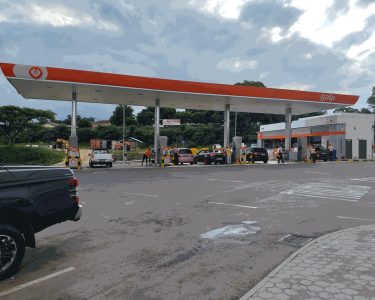By Phephile Motau
Project developers have injected above E1.5 billion into the economy by implementing several infrastructure projects. According to information sourced from the Construction Industry Council (CIC) the amount is arguably circulating within the Eswatini economy injected by several organisations, including the government for different projects. Data provided by the CIC Acting Chief executive Officer Maqhawe Mnisi shows that these infrastructure projects were registered with the Council between April 2021 and May 2022.

The CIC is the industry regulator which was established through the Construction Industry Act No14 of 2013, which also outlines its functions. All companies and persons involved in construction are required by law, among other things, to be registered with the Council.
According to an industry expert, the construction sector plays a key role in the economy as it results in infrastructure stock/capital accumulation which leads to increased social and economic activities.
The construction industry further contributes to employment, household income, and economic growth.
Amongst the powers of the council is that it requires any person or contractor to obtain and collate information concerning any existing or proposed projects and where necessary, advise persons engaged in the construction industry on the project.
The data shows that the infrastructure development projects are classified into government, parastatals, municipalities, private and commercial and non-governmental organisations. The projects also differ as there is construction, electrification, carpentry, rehabilitations, and reconstructions.
It shows that the classification with the highest value of projects is the parastatals, which have added construction projects worth about E570 million. These include the construction of the Eswatini Communications Commission (ESCCOM) Head Office Building at Ezulwini including all ancillary services and external works. The project is worth over E188 million, and it started in January 2022 and is expected to be completed by May 2023. The project contractor is Construction Associates.
The Eswatini Water Services Corporation (EWSC) also has a project worth about E104 million where the company is constructing three reservoirs and a pump station along the Nhlangano to Siphambanweni pipeline.
Another registered project by parastatals is the construction of residential apartments by the Public Service Pensions Fund (PSPF) which is worth about E99.5 million.
The government has registered projects which are worth about E476 million. The projects were initiated by both the government and Microprojects.
The projects include the rehabilitation of roads which were damaged by the heavy rains experienced by the country during the past summer. Rehabilitation of the Lusekwane Road failure along Motshane-Matsamo Highway (MR1) is worth about E48 million while the rehabilitation of Mafutha Road failure along the MR3 (Ngwenya-Manzini Highway) is worth over E37.9 million
They also include the rehabilitation of Makholokholo Road failure along MR3 Highway which is worth over E27 million. These road rehabilitation projects are being carried out by different contractors.
The government has also commissioned projects in critical social needs of the population, and these include the construction of classrooms, teachers’ quarters, clinics and rural portable water supplies amongst others.
The private commercial projects are worth over E420 million. Another project with a high budget is the construction of the FNB head office worth about E127 million. The second highest value is the CONCO warehouse expansion which is worth over E117 million. Other companies which have contributed to the economy through inftrastructure projects include Royal Eswatini Sugar (RES) Corporation, Ubombo Sugar, Nkonyeni Golf Estate, Medisun Clinic and Riverside Properties. Some of the projects include the construction of shopping complexes, malls, and office buildings.
Municipalities on the other hand have registered projects worth about E69 million.
In the CIC annual report 2018/2019, the Minister of Public Works and Transport Chief Ndlaluhlaza, said the construction sector contributed about three per cent to the country’s real Gross Domestic Product (GDP) and had positive spillovers in terms of stimulating activity across economic sectors and in creating job opportunities.
He said that was why the government had over the years invested significantly in infrastructure development in urban and rural areas. He said as outlined in the country’s National Development Plan, efficient provision of well-developed infrastructure was critical for economic development and to create opportunities, particularly for the poor and marginalised. Hence the continued construction of buildings, roads, bridges, rail, and air transport infrastructure had provided a conducive environment for the country to be well integrated with the global economy in terms of increased trade and investments.
Construction Works:
| Classification | Value |
| Parastatals | E570 million |
| Government | E476 million |
| Private Commercial | E420 million |
| Municipalities | E69 million |
| Total Value | E1.5 billion |




